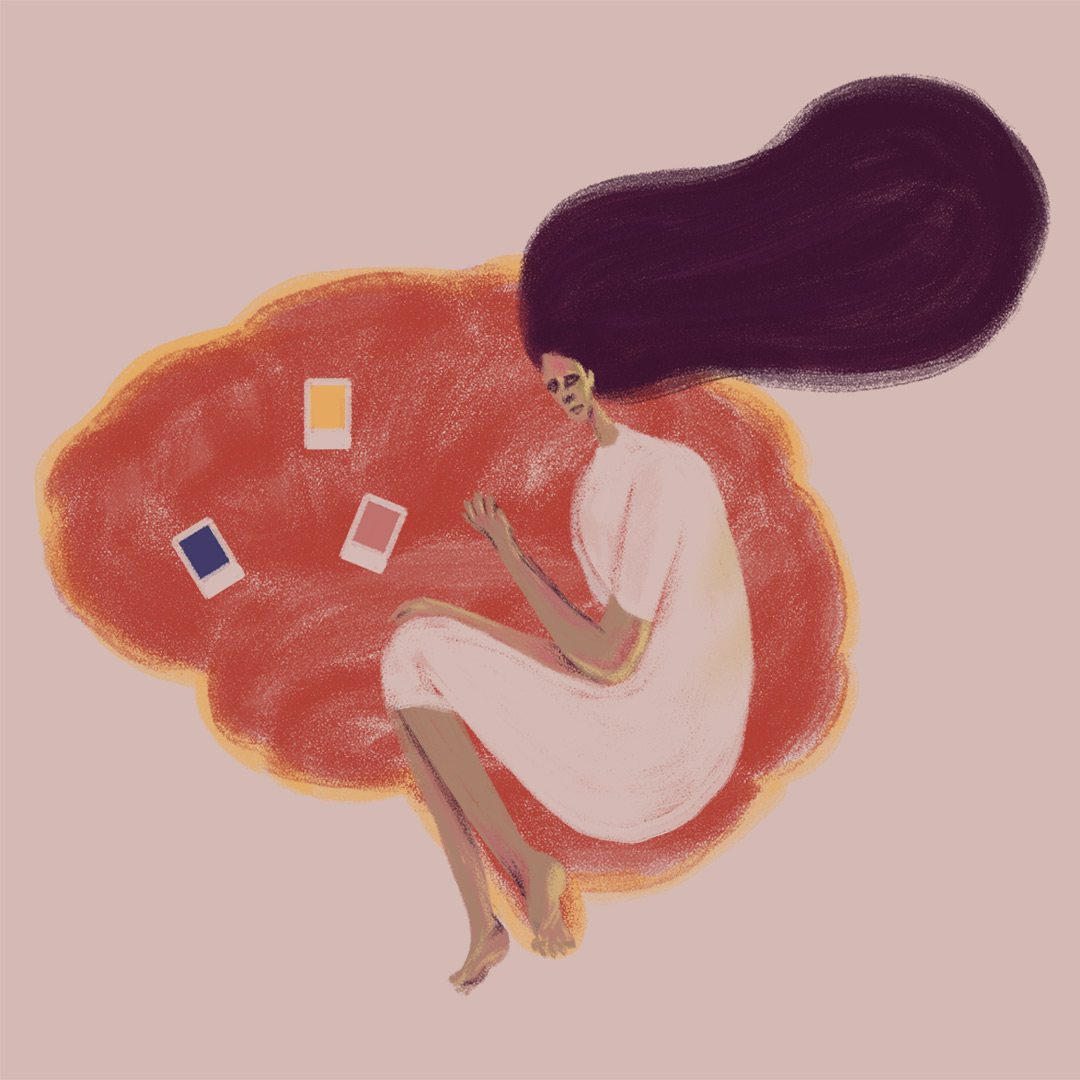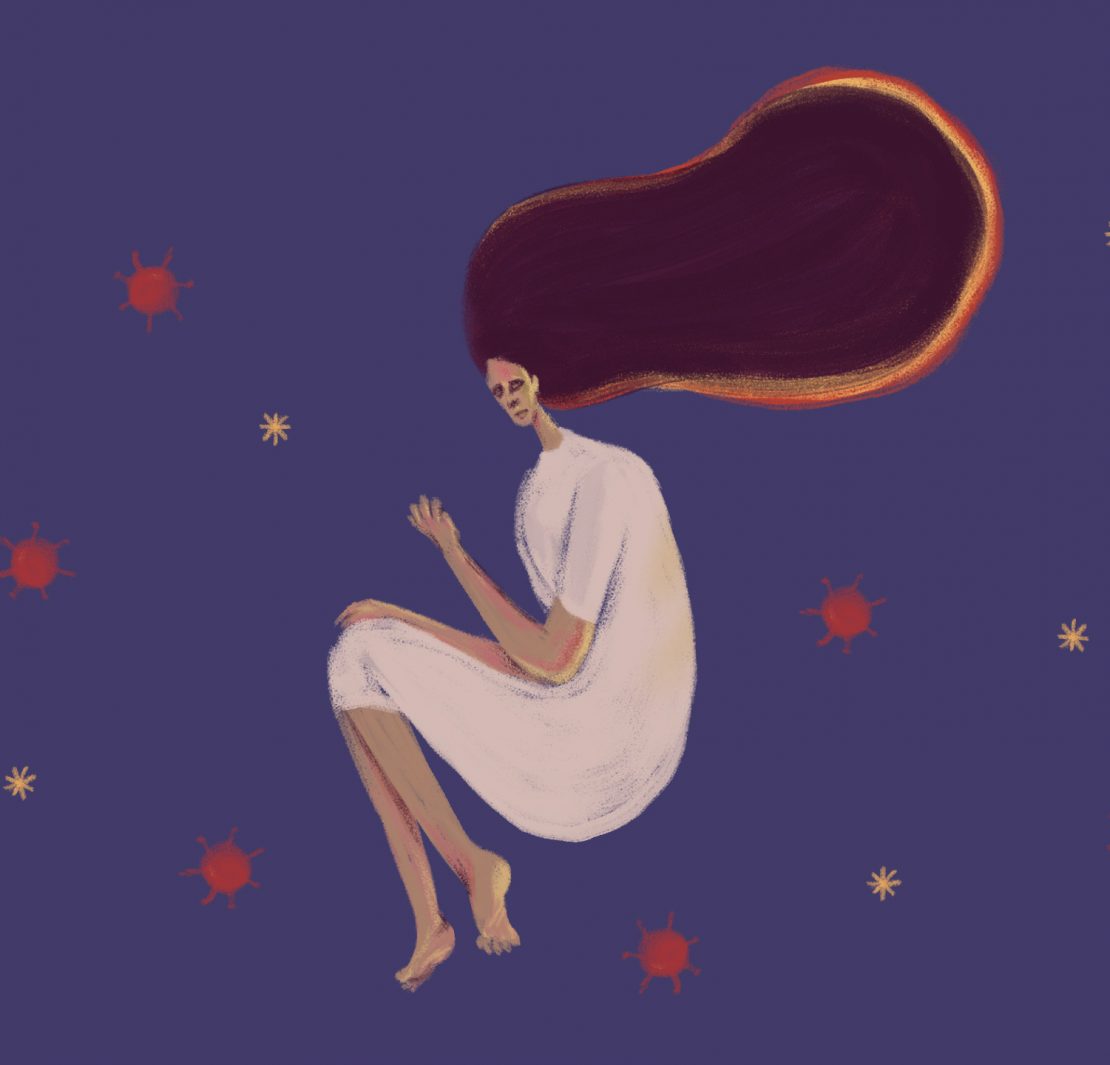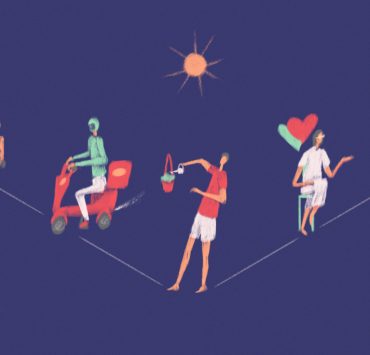There was a mass gathering in my dream last night. Crowds were gathered inside a mausoleum and my highschool biology teacher was giving out packs of instant noodles and, oddly enough, powerbanks. A loud ruckus ensued at the far end of the room and the shrill sound of a harmonica began to play. I woke up in cold sweat.
Ever since the enhanced community quarantine started, my dreams have become more vivid and sporadic–with drowning, sickness or death ending with silent mornings in which I can’t recall last night’s dreams. Apparently, as the pandemic reconstructs the affairs of the world , a collective shift has been happening in dreamland as well.
A website that holds surreal recollections of dreams submitted by people all around the world amid COVID-19 called I Dream of Covid actually exists. One resident from Italy submitted a story: “In the near parking area a lot of people with white t-shirts were getting on white pullmans heading towards the city-centre for a parade in order to protest against the spread of COVID.” Another from Washington dreams of taking her daughter’s temperature as fires spread around her house.
Dreams occur during rapid eye movement (REM) sleep which usually happens after slow-wave sleep, the portion of sleep characterized by low-frequency brainwaves. In REM sleep, the brain is more active with neurons in the cerebral cortex (the part of the brain that controls memory and consciousness) moving between 30 to 80 times per second. A 2018 research has found that what our dreams contain–the feelings they evoke and the images they create–can actually be derived from our daily experiences.
Possible reasons
A Bangladesh resident submits on I Dream of Covid a solemn dream where she and her friend spends time at a veranda overlooking a vast field of trees and red flowers. Her friend soon tells her that they have died from the virus. She notes that she has been “sick with anxiety during the lockdown.”
Being in a crisis heightens our emotional responsiveness. Recent studies have shown that the emotional center of the brain is more active than the logical one, which means that our vivid dreams amid the pandemic may be a result of emotional stress. An ongoing study centered on dreams during the pandemic also shows that the stronger emotions a dream evokes–whether it be fear, sadness or euphoria–the better one can recall a dream.
One key characteristic of our dreams now is their vividness—how images and scenes play in our minds hours after we wake up. This may have something to do with anxiety. Tossing and turning and frequently waking up from a nightmare can make us recall dreams as if they were real life memories. However, this can also be linked to insomnia, which research finds can stem from cases of depression or trauma.
The threat simulation theory by cognitive neuroscientist Antti Revonsuo is applicable in explaining COVID-19 dreams as our brains can simulate threatening events much like this pandemic into dreams. He proposes that real life stressful experiences we see in our dreams are our brains’ mechanism to “mark situations as critical.”
 Another possible reason we may be dreaming so much during the COVID-19 pandemic may be explained by the memory consolidation theory of sleep, which states that dreams may be a way for our brain to reorganize memories, thoughts and lessons accumulated throughout the day. With the barrage of information from our peers, media outlets and medical experts, our minds have a lot to process and our dreams may be our brain’s way of digesting all this information and eventually make way for more memorable dreams.
Another possible reason we may be dreaming so much during the COVID-19 pandemic may be explained by the memory consolidation theory of sleep, which states that dreams may be a way for our brain to reorganize memories, thoughts and lessons accumulated throughout the day. With the barrage of information from our peers, media outlets and medical experts, our minds have a lot to process and our dreams may be our brain’s way of digesting all this information and eventually make way for more memorable dreams.
Consistent sleeping patterns may also be a culprit—making our dreams consistent as well, explained Dr. Deirdre Leigh Barrett, Ph.D., to the Los Angeles Times. As everyone is cooped up inside their homes, people are falling asleep and waking up at around the same time each day, and with a lack of environmental changes and other outdoor stimuli, sleep experts have suggested that our brains may be conjuring stimuli from past experiences through our dreams.
Dream diary
Scientists understand how and why dreams occur, but despite comprehensive research, there’s still no definitive explanation behind what our dreams mean. Dreams are riddled with the most bizarre instances and objects and so we can’t help but try to make sense of them.

Neuroscientists suggest that keeping a dream journal can help you understand your dreams. To make dream journals, simply log down all you remember from your dream–may it be in a notebook, on your phone or even by talking to someone about it. This will also help you determine which elements of your dream you resonate with most; it can also help you process real life problems. It’s also best to keep a healthy sleeping hygiene which, according to the Cleveland Clinic, can help reduce nightmares.
[READ: Pulling off a good night’s rest: How to sleep better and faster]
However, when nightmares do come to play at night, a part of us will always wonder why we dreamt of those things. Is it some sort of foreshadowing? Maybe a hidden desire or deep-seated fear? There are a number of “dream dictionaries” online that follow Freud’s theory that dreams are visions of what we truly desire (albeit Freud having only hypothesized on sexual occurrences in dreams), none of which are actually backed by scientific evidence.
It’s possible that dreams are not derived from any of our inner desires, but they are as meaningful as the dreamer makes it out to be.
This website says that water in dreams can mean feeling overwhelmed and that wasps are a symbol of evil friends. This comprehensive list says that a harmonica suggests that “you need to let more joy and pleasure come into your life,” which in my case, is the least of my problems right now.
This goes to show that dreams are subjective. However, this subjectivity still plays a role on how we as individuals act in our daily lives. Dreams can affect our worldviews, opinions, beliefs and ideas. It’s possible that dreams are not derived from any of our inner desires, but they are as meaningful as the dreamer makes it out to be.
What’s important to note here is that you are not alone and that such odd dreams are not unprecedented. Besides the fact than this dream phenomenon has happened before (during the 9/11 attacks and the Haiti earthquake), people from around the world are also experiencing the same fear and anxiety brought on by the pandemic and with this comes a collective understanding that this is a time that needs compassion, empathy, gratitude and collaboration. Our dreams, no matter how scary they may be, shouldn’t hinder us from hoping that this will all come to an end.
Get more stories like this by subscribing to our weekly newsletter here.
Read more:
7 clinics and organizations that offer mental health support for frontliners
Here’s where you can get a mental health checkup online or on the phone
Writer: THEA TORRES
ART LEVENSPEIL SANGALANG




